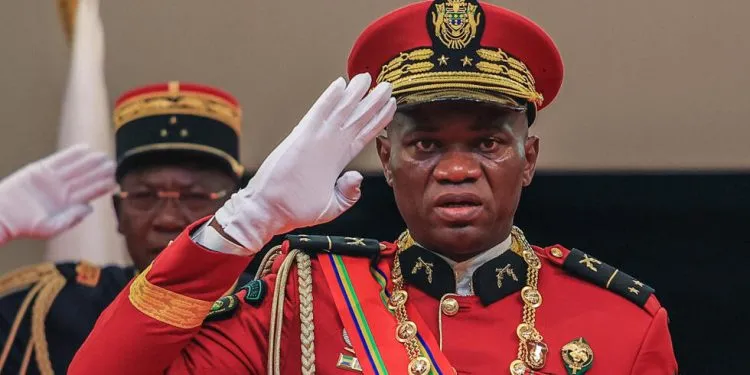Gabon’s transitional leader, General Brice Oligui Nguema, has officially declared his candidacy for the country’s upcoming presidential election, scheduled for April 12. The announcement, made on Monday, follows months of speculation regarding Nguema’s political future after he led a military coup in 2023 that ended the Bongo family’s 55-year rule.
Nguema’s Justification
Nguema justified his decision as a response to public demand, stating, “After careful reflection and in response to your many appeals,” he would seek the presidency. Addressing supporters amid a heavy downpour in the capital, Libreville, he asserted his commitment to transforming the oil-rich nation. “I am a builder, and I need your courage, your strength, to build this country,” the 50-year-old leader proclaimed.
His declaration comes against the backdrop of sweeping legal reforms introduced under his rule, including a new constitution and electoral code. Critics argue these changes were tailored to facilitate Nguema’s bid for power, despite his initial pledge to transition authority to civilian leadership.
Military Backing and Legal Ambiguity
On Saturday, while meeting with the military, Brice Oligui Nguemaacknowledged their desire for him to enter the race and encouraged their participation. “I listened to you and, believe me, I understood you,” he assured, promising further communication in the coming days.
Uncertainty has surrounded Nguema’s military status as he prepares for the election. His spokesperson refuted speculation that he had left the armed forces—a legal requirement for candidature.A Facebook page associated with his administration, Infos CTRI Officiel, clarified that he must temporarily relinquish his military uniform while campaigning but would permanently resign from the army only if elected. “If he’s not elected, he will return to the barracks,” the page stated.
The Legacy of the Bongo Dynasty
The coup that propelled Nguema to power ended the tenure of President Ali Bongo, who had ruled for 14 years following the death of his father, Omar Bongo, in 2009. Allegations of corruption and economic mismanagement marked the Bongo family’s decades-long governance, despite Gabon’s vast oil reserves and rich natural resources. The United Nations estimates that one-third of Gabon’s 2.4 million people live below the poverty line.
Regional and Domestic Reactions
Regional leaders have weighed in on General Brice Oligui Nguema’s leadership. Last month, Equatorial Guinea’s President, Teodoro Obiang Nguema Mbasogo, encouraged the Gabonese people to support him, suggesting his leadership could usher in a better future. However, opposition groups and civil society organizations continue to call on Nguema to honor his initial commitment to hand power back to civilian authorities.



